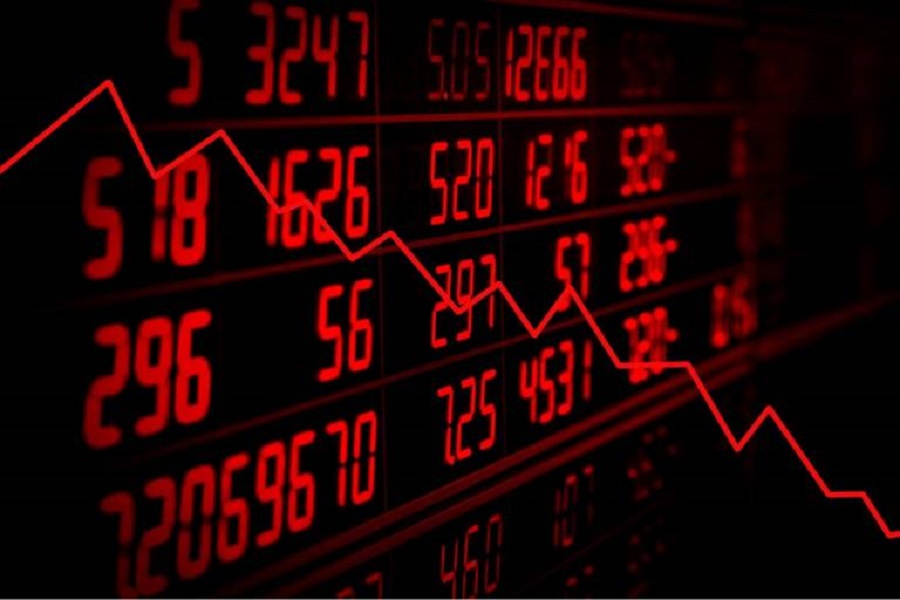RIO DE JANEIRO, BRAZIL – Ibovespa closed down 0.89% at 102,122 points. The traded volume in the day reached R$26 billion. It was the index’s lowest closing since November 6 last year.
Ibovespa had come from a difficult week and seemed to be recovering part of its losses in past sessions, rising over 1% on Monday, November 22. The Stock Exchange was advancing at the 104,000 points level, but reversed with fears over the country’s fiscal situation and not only suffered another bearish day, but also had its worst closing in over a year.

The change in the Ibovespa’s behavior coincided with the statement made by Ministry of Economy Special Secretary for the Treasury and Budget Esteves Conalgo. In the Senate’s Commission of Constitution and Justice (CCJ), Conalgo stated that the Court-ordered federal debt PEC in its current format opens a fiscal gap of R$106.1 (US$19) billion in the 2022 Budget.
The estimated value exceeds the initial projection presented by the portfolio by R$14.5 billion. The change is due to the correction in the parameters for inflation estimated for the end of the year. Previously, the government’s economic team expected the Extended Consumer Price Index (IPCA) to close 2021 with an accumulated high of 8.7%, now it is 9.6%.
“The market was considering the 8.7% inflation projection to be conservative. With the new projection, there is concern that inflation will be even higher, further increasing the value of the PEC and worsening the country’s fiscal situation beyond what was anticipated,” explains BRA head of allocation desk Leandro Vasconcellos.
The market is projecting double-digit inflation for 2021. Economists once again raised their projections for the Extended National Consumer Price Index (IPCA) for 2021, the Central Bank’s Focus Report showed. From 9.77% last week, the median expectation for inflation this year is now at 10.12%. For 2022, forecasts rose from 4.79% to 4.96%.
As for the Gross Domestic Product (GDP), projections were lowered from 4.88% to 4.80% in 2021; for 2022, from 0.93% to 0.70%. The week still holds the release of the November inflation forecast, with the IPCA-15, on Thursday.
Vale’s (VALE3) shares rose the most in the day, closing with gains of over 5% due to the increase in the price of iron ore. However, the shares of retailers were again penalized by rising inflation.
Ibovespa futures with maturity in December 2021 fell 1.18% to 102.395 points.
The commercial dollar closed down at R$5.593 to buy and R$5.594 to sell. The future dollar maturing in December closed down 0.5% at R$5.91.
In the future interest rates market, the DI for January 2023 increased 28 basis points to 12.31%; DI for January 2025 rose 24 basis points to 12.17%; and the DI for January 2027 increased 17 basis points to 12.01%.
In the United States the week is shorter. The American stock exchanges will be closed on Thursday, due to Thanksgiving Day, and on Friday, Black Friday, they will operate on a reduced schedule.
Stock markets had mixed reactions to President Joe Biden’s decision to keep Jerome Powell as chairman of the Federal Reserve. In the post since 2018, Powell will serve a 4-year term if his nomination is approved in the Senate. In any event, he is expected to remain as a member of the Board of Governors until January 2028.
In New York, the Dow Jones closed up 0.05% at 35,619 points; the S&P 500 slipped 0.32% at 4,682 points; the Nasdaq closed down 1.26% at 15,854 points.
Before the Thursday holiday, investors are also expected to review the minutes of the U.S. Federal Open Market Committee (FOMC). The document may provide further details about the Fed’s role in reducing the asset purchase program.
In Europe, stock markets were pressured once again by the new lockdowns on the continent. German Chancellor Angela Merkel signaled that more restrictive measures are to be implemented in Germany, which pushed stock markets down. But the positive performance seen earlier in New York helped improve investors’ mood. The Stoxx 600 index, which gathers shares from 600 companies in key sectors from 17 European countries, closed slightly down by 0.13%.
The positive highlight is the telecommunications sector, with companies in the sector operating at a high after the U.S. fund KKR bid US$12 billion to take over Telecom Italia. The company’s shares shot up 30%.
Oil prices began the day down, but reversed course and gained momentum. The Brent barrel advanced 0.9% to US$79.60 and the WTI increased 0.96%, to US$76.67. In turn, iron ore prices shot up after recent drops: on the Dalian Stock Exchange in China, quotations closed up 5%.
Also in Asia, the Chinese Central Bank issued a note stating that it will maintain a “flexible and targeted” monetary policy, which analysts viewed as a change in stance that may ease financial conditions, to sustain the economic recovery.

